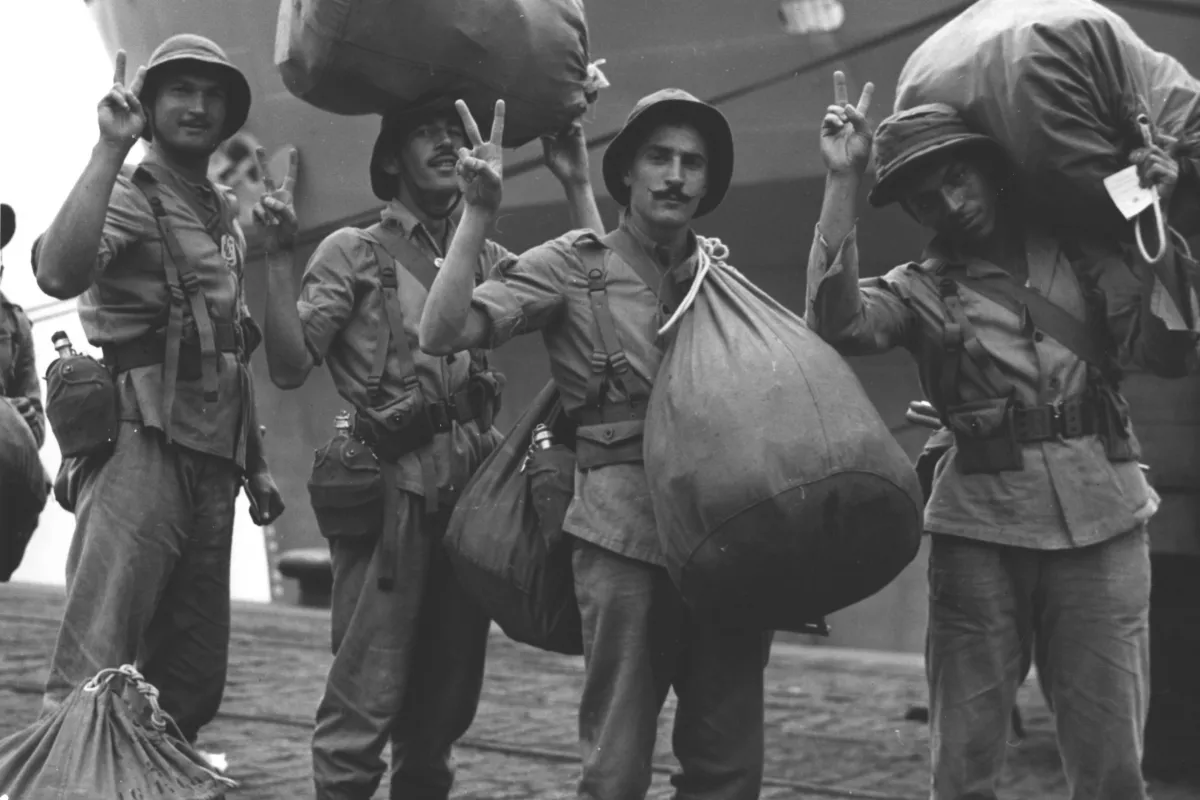
How Switzerland Protected Latin American Interests In Nazi Europe
“On our part, we will send a note announcing that, as our offices in Germany will be closed on November 15, it will no longer be possible to take care of your interests, and we recommend that you contact the American authorities if necessary.”
The note comes from an internal dossier External link from the foreign ministry. It's dated November 1945, right after the end of the Second World War, and ends a little-known Swiss role: that of protector of 17 Latin Allied interests in Axis countries.
Amid the collapse of international relations brought on by the conflict, Swiss neutrality became a strategic asset for the Alpine country. While countries in Latin America severed ties with the Axis powers – Germany, Italy and Japan, and occupied nations such as France – Bern assumed the role of guardian of their interests in Europe.
Pressed by the United States to ensure hemispheric security and align with the Allied war effort, Latin American countries, including Uruguay, Brazil and Mexico, broke off relations with the Axis powers. This decision, however, left millions of immigrants and economic interests in the warring countries without diplomatic representation.
To fill this gap, Switzerland was chosen as a protecting power, taking on consular and administrative responsibilities for both sides.
Between 1939 and 1945, Swiss diplomats operated in Berlin, Rome and in the part of France occupied by Germany, as well as in occupied cities such as Copenhagen. They handled consular tasks, assisted citizens, and maintained secret communications on behalf of Latin American governments, expanding their influence and protecting their interests in the region.
External Content“Latin America was an important economic market, and a significant number of Swiss citizens living abroad resided there. Representing Latin American interests in Europe gave the Swiss government an important role, ensuring economic relations and the protection of its citizens,” explains Stella Krepp, associated researcher at the Department of Iberian and Latin American History at the University of Bern.
Thus, discreetly, Switzerland expanded its global reach, using diplomacy as a shield to protect distant allies while strengthening its own network of influence, which continues to this day, according to specialists.
What representation meansThe practice of a protecting power, carried out by Switzerland during the conflict in Europe, is defined as acting on behalf of other states that had broken diplomatic relations or lacked direct channels of communication.
In such situations, Switzerland mediated messages between governments, safeguarded embassy property and even issued documents such as passports and visas. It was a discreet but essential role that made the country a reliable intermediary during international crises.
This tradition began during the Franco-Prussian War (1870–71), when the Alpine country represented the interests of Bavaria and the Grand Duchy of Baden in France. It gained relevance during the First World War, when Switzerland exercised about 36 mandatesExternal link .
“The practice of 'protecting powers' became more common after the First World War and was formalised in the Geneva Convention on Prisoners of War, the 1929 Convention Relative to the Treatment of Prisoners of War, the third edition of a document initially signed in 1864 and a cornerstone of humanitarian law,” says Paula Vedoveli, a professor who studies the subject at the School of International Relations at the Getulio Vargas Foundation in Brazil.
Read more on how propaganda flooded Switzerland in the First World War:
More More Demographics How propaganda flooded Switzerland during WWIThis content was published on Sep 8, 2014 Greek dramatist Aeschylus noted that truth was the first casualty of war almost 2,500 years ago. Nevertheless, efforts to influence public opinion reached new dimensions in 1914, with little Switzerland, a neutral island among warring nations, turning into a media battlefield. For example, in an effort to prevent the country from disintegrating, William Tell frequently...
Read more: How propaganda flooded Switzerland during WW
Legal Disclaimer:
MENAFN provides the
information “as is” without warranty of any kind. We do not accept
any responsibility or liability for the accuracy, content, images,
videos, licenses, completeness, legality, or reliability of the information
contained in this article. If you have any complaints or copyright
issues related to this article, kindly contact the provider above.

















Comments
No comment